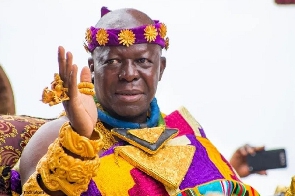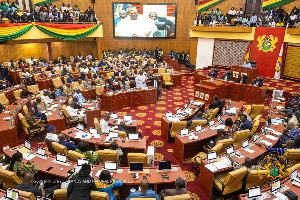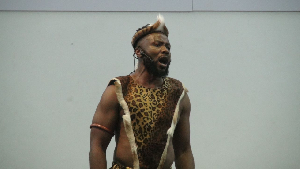It has been 20 years of visionary and impactful leadership since Otumfuo Osei Tutu II ascended the Golden Stool as the 16th Asantehene. For two decades, the Asantehene has demonstrated exemplary leadership that has been hailed not only in Ghana but also on the international stage.
Following his enthronement as the overlord of the Asante Kingdom in 1999, Otumfuo set up an education fund which has since impacted the lives of many school children within the Kingdom and beyond. In excess of over 300,000 students have received full scholarship from basic to university level as at April, this year when the Asante Monarch celebrated his 20th anniversary on the throne.
These are a few of many leadership qualities exhibited by the Asantehene which has impacted the lives of thousands of Ghanaians over the years. Refreshingly, just after celebrating his 20th anniversary on the throne, the Asante King has joined global efforts aimed at mitigating effects of climate change across the globe by initiating another landmark project set to benefit even generations yet unborn.
The King has rolled out a comprehensive programme to plant over 100 million trees around river bodies in the Ashanti Kingdom for the next five years. This, according to him, is his little contribution towards the global fight against climate change which continue to pose a serious threat to human health across the world.
The first phase dubbed “Lake Bosomtwe Landscape Restoration Project” seeks to plant 2.5 million trees around Lake Bosomtwe basin. The Lake, which is Ghana’s only natural lake, has been designated a biosphere reserve site by the United Nations Educational, Scientific and Cultural Organization (UNESCO) to promote a healthy balance between biodiversity conservation and its sustainable use.
A tripartite agreement has been signed between UNESCO, the Ministry of Water Resources, Works and Housing and Otumfuo Osei Tutu II, custodian of the lake to implement a sustainable management plan for the entire Lake Bosomtwe Biosphere Reserve.
This, the Otumfuo is determined to achieve, having pledged his commitment to mobilizing traditional leaders, the private sector, academia, civil society organizations and the youth to contribute their quota towards the attainment of the Sustainable Development Goals (SDGs) by 2030. The expectation is that the provision of ecosystem services such as quality air, carbon sequestration, local climate regulation, soil erosion control, watershed protection to improve longevity and quality water bodies would be enhanced.
Additionally, the future of the lake Bosomtwe Biosphere Reserve would bring together communities on conservation, sustainable use and management of natural resources as well as innovative socio-economic development strategies under a green economy.
All major river bodies in the Ashanti Kingdom would also be protected under the second phase of the project. Most of these rivers serve as source of drinking water for thousands of people yet they continue to dwindle in size due to negative human activities, such as illegal logging of trees in their catchment areas as well as wanton pollution. It is for these reasons that the depleted stock of trees on riverbanks are going to be replenished under the project.
A campaign to introduce farmers in the project areas to climate-smart agriculture to ensure sustainable agricultural productivity while building resilience to climate change is underway. They are currently being educated on how to conserve the topsoil such that it would not be affected by erosion in order to maintain the nutrients and micro-organisms in the soil for higher yields.
The eminent king is entreating all stakeholders, including state agencies to support the project, which is in the collective interest of every citizen.
The Oheneba Poku Foundation with the support of the Forestry Commission (FC), Water Resources Commission (WRC), Environmental Protection Agency (EPA) and other allied state agencies would lead the implementation process.
According to Prince Opoku Agyemang, the founder of Oheneba Poku Foundation, ‘increasing afforestation and reforestation in degraded forest areas, improving participatory forest management as well as climate resilience and biomass production would be the focus of the project’. he assured.
General News of Wednesday, 11 September 2019
Source: myxyzonline.com













